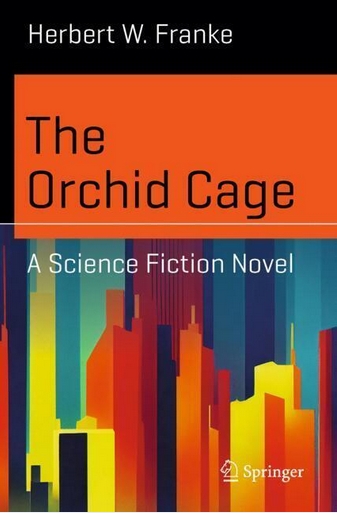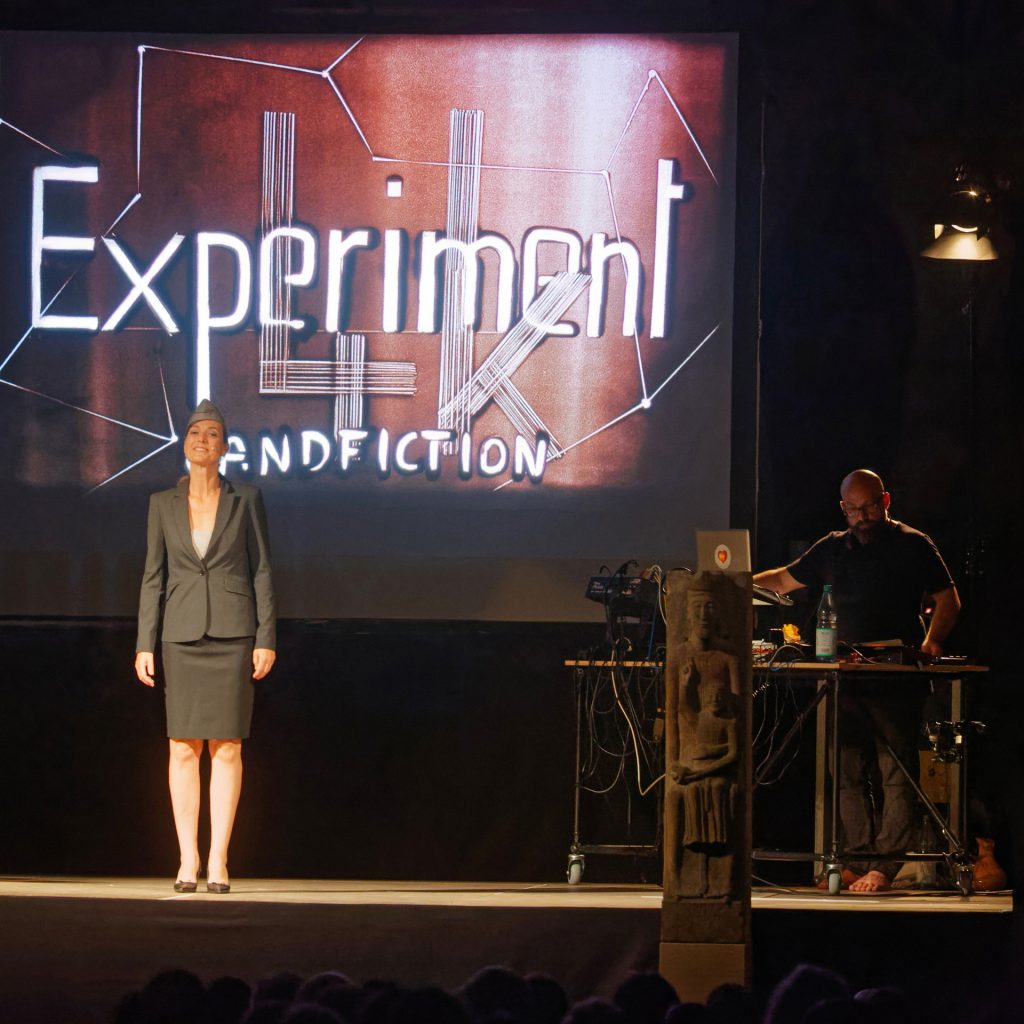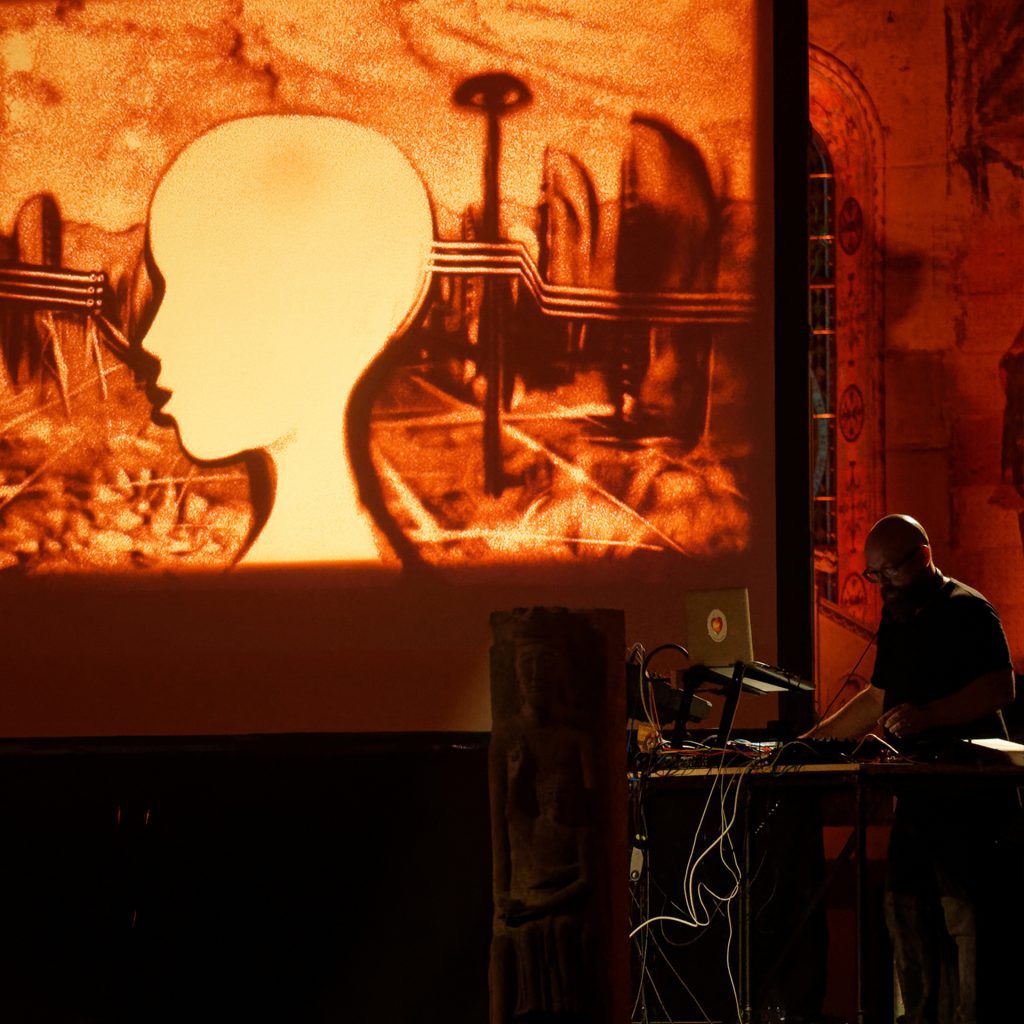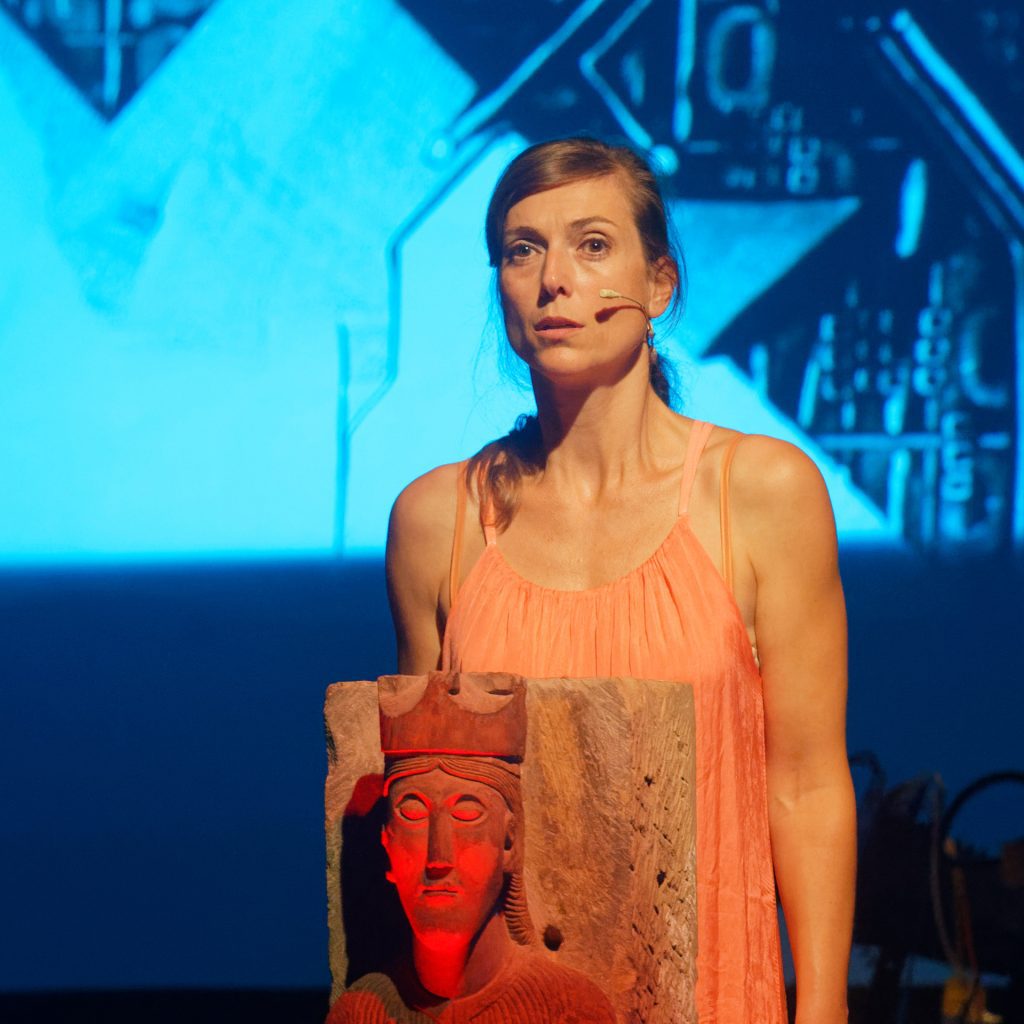“Der Orchideenkäfig”, Herbert W. Franke’s classic sci fi novel published in English
Springer-Verlag published The Orchid Cage, the English translation of an early literary work by Franke. This translation of the novel from 1961 will be presented as the Generative Art Summit Berlin in July. As an artistic highlight, a theater performance with central motifs from the novel will be shown at the end of the event on July 6th.


Christian Caron, Executive Publisher Springer: „It is an extraordinary honor for Springer to be able to publish this early and timelessly relevant novel in its new English translation. Franke skillfully interweaves numerous scientific and philosophical themes in this short, haunting work, culminating in one of the most impressive literary warnings to date about technology-driven human evolution and immortality. As the latest volume in Springer’s ‘Science and Fiction’ series, this novel is certainly also a further encouragement, especially for all interested, active scientists, to extrapolate their research creatively and consistently and to evaluate it in literary form. As the latest volume in Springer’s Science and Fiction series, this novel is certainly also a further encouragement for all interested, active scientists to extrapolate their research creatively and consistently and to evaluate it in literary form.“
As the literary scholar Prof. Hans Esselborn, an expert on Franke’s works, emphasizes in his epilogue, the novel already contains two central themes that the author has repeatedly explored from different perspectives: virtual adventures in cyberspace and the self-perfection of automated machines to the point of artificial intelligence. The novel also hints at why Franke considers the total care of humans by such autonomous machines to be a dead end: “because the principle of automation itself has a fundamental flaw. In the novel, the system of machines let the visitors go because it had no data about their danger. The machines have no foresight and can only ever react to events after the fact, otherwise they remain on the same and perhaps wrong track of action.’ The program did not provide for any intervention in the surface regions. The automatic system only learns from what actually happens. The program can only be changed afterwards. The necessity of imagination to cope with dynamic reality is implied here.” In many of his works, as Esselborn goes on to write, Franke counters this ominous dead end of a static society with “creative innovation”.
Such thoughts also follow Franke’s overarching view of the world: he never saw himself in the role of a “prophet”, as he was convinced that the future is fundamentally unpredictable. For him, there is “real” chance in our universe, which, as he put it, “refreshes” the world, and therefore also life in it, through “innovation”. This genuine coincidence cannot be derived deterministically, as mathematicians have shown us in the Turing test, for example. Franke explained these thoughts in detail in his book “The P-Principle” and also experimented visually and artistically with cellular automata, with which he simulated non-deterministic chance in the universe with mathematical (but ultimately deterministic) random generators. Even if Franke did not consider the future to be predictable, he saw his task as an author as giving the reader possible models of an already emerging future in the sense of “literary futurology”. Through a thrilling plot, they should encourage readers to think about it and at the same time encourage them to actively shape this future according to their own ideas.


Many future tech ideas were invented by Franke for his thrilling plot. Hans Esselborn writes: “It is incredible that so many fundamental new technical developments can be found in a text from 1961. Matter converters with atomic piles on an atomic level, completely automated production and the total supply of people by machines. Back then, there were no widespread simulations and holograms as in the novel, no games consoles and no handy personal computers for adventure games with avatars or a life in multiverses as hinted at here, no artificial intelligences such as the collectively acting, data-processing “cube machines”. They have been further developed by this future society into ethics and wish-fulfillment machines.
Franke’s technical solution for overcoming the immense distance to other celestial bodies is an alternative to ‘beaming’ in the “Starship Enterprise” series, which was anticipated in 1961. Franke attempts to give a plausible explanation for this on a scientific basis. Today, this would be called virtual travel using quantum entanglement. Franke, who held a doctorate in theoretical physics, explains his technical solution for the possibility of traveling timelessly through space as a virtual avatar as the mere transmission of information without the transfer of matter or energy. However, it remains to be seen how the transformation between mater and energy is solved.






The artist group Kaleidolux has now transformed the exciting and bitter parable of human evolution in a highly technologized entertainment society in cyberspace into a fascinating theater performance Sandfiction 4K: The Orchid Cage. The introductory words will be given by Dietmar Dath, one of the “greats” of German-language SF today, who also wrote the foreword to the Springer edition. The actors will conjure up a menacing future world on stage, culminating in a court battle in which the vandalizing earthlings on their extragalactic entertainment trip have to answer to a local judge, the “Machine”. It controls a world that was once inhabited by an apparently highly developed but apparently extinct human-like creature. Today, we would call the “machine” “artificial intelligence”. It holds the virtual cyber-gamers accountable for their actions in a distant world and condemns them to death, which ultimately doesn’t matter much to the players, who are just duplicates. And finally, “the machine” reveals a surprising secret about the seemingly extinct creatures of the planet, the autonomous intelligence that was once created by these inhabitants …
We conclude with the words of Dietmar Dath at the beginning of his moody foreword to The Orchid Cage: “This unique book paradoxically combines the urgency of prophetic horror with the calm sobriety of true wisdom.”
